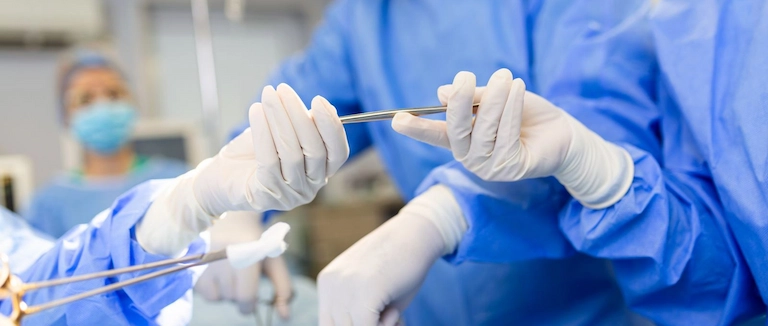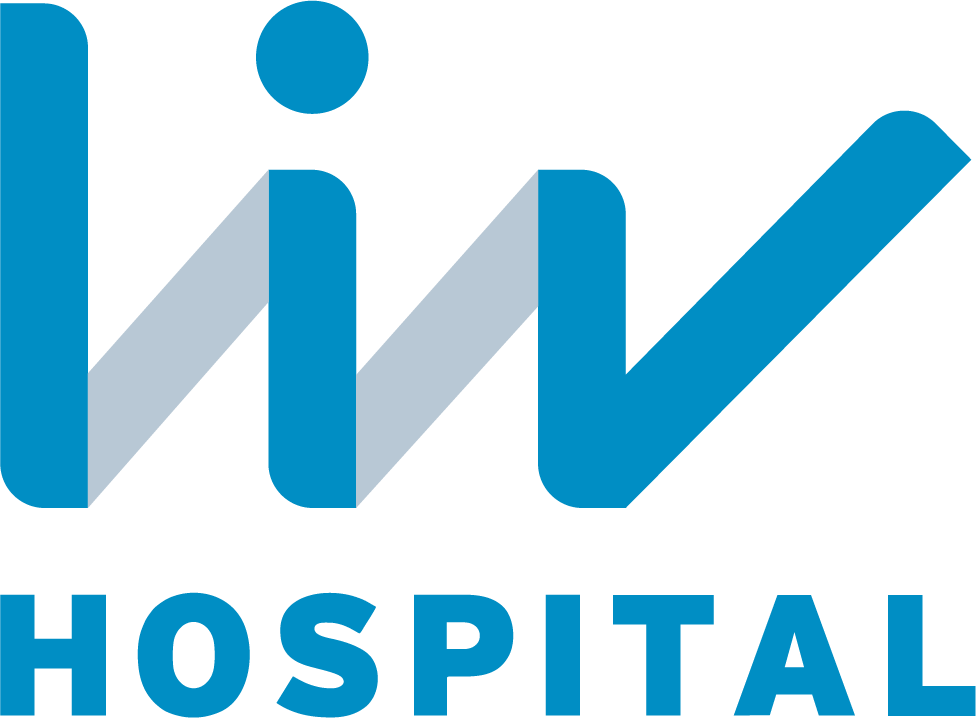Gastric Sleeve Surgery: Procedure, Benefits, and Weight Loss Results
Obesity is a serious and progressive public health problem that has increased in recent years. In the 20th century, many different surgical procedures were developed to treat obesity. Gastric sleeve gastrectomy, one of the methods used to reduce the size of the stomach, is a safe, permanent, and effective procedure with high survival rates.
During gastric sleeve surgery, approximately 80% of the stomach is removed, and the remaining portion is closed with a staple line. This is a minimally invasive procedure and is less invasive than Roux-en-Y gastric bypass surgery. It is also known as “sleeve gastrectomy” and is widely preferred today.

Who can have a sleeve gastrectomy?
The process for it closely mirrors that of other bariatric surgeries. Individuals who may be considered candidates for bariatric surgery generally meet the following criteria:
• BMI ≥ 40 kg/m², which is classified as morbid obesity
• BMI ≥ 35 kg/m² combined with at least one obesity-related health condition, such as diabetes, hypertension, sleep apnea, or serious musculoskeletal disorders like arthritis
• Prior unsuccessful attempts at weight loss through non-surgical methods, including diet and exercise
• No medical conditions that would make surgery unsafe or inadvisable
Laparoscopic it is recommended for patients who are classified as obese or morbidly obese based on their body mass index. Morbid obesity can lead to a range of serious health issues, especially in women. These may include infertility, gestational diabetes, pre-eclampsia, and notably, irregular menstrual cycles.
What are the benefits of sleeve gastrectomy?
Sleeve gastrectomy leads to significant improvements in a variety of important clinical parameters.
The benefits of it include:
- • Weight Loss: Sleeve gastrectomy results in significant and sustained long-term weight loss (up to 80%), along with decreased hunger, quicker feelings of fullness, and positive changes in food preferences.
- • Regulation of Lipid Disorders: Sleeve gastrectomy can help normalize blood lipid levels. After surgery, patients often see decreases in triglycerides, total cholesterol, VLDL, and LDL cholesterol, reducing risks linked to hyperlipidemia and related conditions.
- • • Decrease in Depression: Bariatric surgery, including it, is linked to a reduction in clinical depression due to the close association between obesity and mental health. Patients often experience improvements in physical, psychosocial, and sexual well-being following surgery.
- • Reduced Cardiovascular Risk: Sleeve gastrectomy helps improve coagulation and metabolic health, thereby decreasing the risk of cardiovascular diseases associated with morbid obesity.
In addition, it has been shown to improve fibrosis, steatosis, and ballooning degeneration in patients with non-alcoholic fatty liver disease (NAFLD).
Are there any harms associated with gastric sleeve surgery?
Each bariatric surgery procedure has its own advantages and disadvantages. Any potential disadvantages of the chosen method”tailored to the patient’s physiological condition and personal preferences”can generally be managed in collaboration with a healthcare professional.
- • Surgical Complications: The most common complications after it include bleeding, leaks from the staple line, and the formation of fistulas.
- • Nutrient Deficiencies: Removing a large portion of the stomach alters the absorption of essential vitamins and minerals, making deficiencies in nutrients such as vitamin B12, iron, calcium, folic acid, vitamin D, and vitamin B1 common following sleeve gastrectomy.
- • The most common micronutrient deficiencies after it are vitamin B12, iron, calcium, folic acid, vitamin D, and vitamin B1. Careful postoperative monitoring and prompt management of these deficiencies are essential.
- • Early Complications: Patients may experience bleeding, blood clots, infections, abscesses, acid reflux, and anatomic leaks following surgery. Additionally, some may develop dumping syndrome, which presents as bloating, diarrhea, and dizziness approximately one to two hours after eating.
- • Insufficient Weight Loss: While most patients achieve significant weight loss after sleeve gastrectomy, about 23% may experience inadequate weight loss, progressive weight regain, or persistence of related health conditions (comorbidities).
Second stage surgery may be considered for patients who do not achieve sufficient weight loss after sleeve gastrectomy. However, only a small percentage (about 2.5%) of these patients actually require a second operation.
What are the benefits of sleeve gastrectomy?
Sleeve gastrectomy can effectively address obesity and related health conditions. As a result, the benefits of this procedure are substantial. With the resolution of obesity, a significant improvement in overall health is anticipated.
- • Type 2 Diabetes: Sleeve gastrectomy is effective in treating type 2 diabetes, as it leads to lower HbA1c levels and improved insulin sensitivity following surgery.Obstructive sleep apnea: After sleeve gastrectomy surgery, the sleep apnea picture improves with the improvement of respiratory disorders. Thus, sleep disorder problems are eliminated in morbidly obese people after surgery.
- • Cardiovascular Disease: Morbid obesity impacts the coagulation system and overall cardiovascular health. Weight loss achieved through sleeve gastrectomy helps lower the risk of cardiovascular disease, heart attack, and stroke.
- • Musculoskeletal Pain: Morbid obesity often leads to gait abnormalities and muscle or joint pain. Following sleeve gastrectomy, many patients experience improvements in mobility and a reduction in musculoskeletal pain, especially with increased physical activity.
- • Ovarian Diseases: Obesity increases the risks of gestational diabetes, pre-eclampsia, cesarean delivery, and prolonged labor. Sleeve gastrectomy can improve menstrual cycles in premenopausal women and may provide benefits for polycystic ovary syndrome (PCOS), which is a common cause of infertility• In addition to surgery, maintaining regular physical activity and a healthy diet is essential for reversing most obesity-related medical conditions and optimizing long-term outcomes.

What are the risks of sleeve gastrectomy?
- As with any surgical procedure, sleeve gastrectomy carries the risk of complications, which can occur either in the early postoperative period or later during recovery.
- • Bleeding: The incidence of bleeding after sleeve gastrectomy ranges from 1% to 6%. Bleeding most commonly originates from the staple line, spleen, liver, or abdominal wall.
- • Staple Line Leakage: Leakage can occur after laparoscopic sleeve gastrectomy, often due to increased pressure at the staple line. While symptoms may include high fever, palpitations, and rapid breathing, leakage can sometimes occur without obvious signs.
- • Gastroesophageal Reflux: Reflux may develop as a relative complication after sleeve gastrectomy. While not all studies agree, some have found an association between sleeve gastrectomy and the development or worsening of gastroesophageal reflux.
- • Stomach Narrowing: Narrowing (stricture) of the lower part of the stomach may develop after sleeve gastrectomy, leading to symptoms such as difficulty swallowing (dysphagia), nausea, and vomiting. This complication affects approximately 4% of patients.
- • Nutritional Deficiencies: Deficiencies resulting from the removal of a large portion of the stomach can often be managed and improved through regular monitoring, evaluation of clinical symptoms, and early intervention as needed.
- • Medications and supplements should only be taken under the supervision of a healthcare professional. Indiscriminate use can result in serious health complications.
How should I eat after a sleeve gastrectomy?
After surgery, patients may experience rapid passage of food into the small intestine. Postoperative nutrition starts with clear liquids”known as a light liquid diet”consumed during the first few days. Depending on the hospital stay, patients transition to a dark liquid diet and then pureed foods. Proper nutrition is crucial after gastric sleeve surgery, and the following key points should be observed:
- • Food should be chewed thoroughly and eaten slowly to aid digestion and prevent discomfort after surgery.
- • Liquids should not be consumed while eating meals, as this can interfere with proper digestion and satiety after surgery.
- • Liquids should be consumed slowly, starting about half an hour after eating, to support proper digestion and nutrient absorption after surgery.
- • Processed, sugary, fatty foods and carbonated beverages should be avoided after surgery to support healing and long-term digestive health.
- • After the first two or three months, you can gradually return to a normal diet. For the best results, always consult your dietitian and doctor to determine the most appropriate dietary plan for your individual needs.
* Liv Hospital Editorial Board has contributed to the publication of this content .
* Contents of this page is for informational purposes only. Please consult your doctor for diagnosis and treatment. The content of this page does not include information on medicinal health care at Liv Hospital .
For more information about our academic and training initiatives, visit Liv Hospital Academy
Frequently Asked Questions
What is gastric sleeve surgery?
It is a procedure where about 80 percent of the stomach is removed to help patients lose weight effectively.
Who qualifies for sleeve gastrectomy?
People with a BMI of 40 or higher, or 35 with obesity-related conditions, may be eligible.
How much weight can patients lose?
Many patients lose up to 80 percent of their excess weight after surgery.
What are common risks of gastric sleeve surgery?
Possible risks include bleeding, leakage from the staple line, reflux, and nutrient deficiencies.
Does sleeve gastrectomy help with diabetes?
Yes, it often improves type 2 diabetes by lowering blood sugar levels and improving insulin sensitivity.
Will I need to take vitamins after surgery?
Yes, lifelong vitamin and mineral supplementation is typically required to prevent deficiencies.
How should I eat after the procedure?
Start with liquids, then pureed foods, eat slowly, chew well, and avoid sugary or carbonated drinks.























